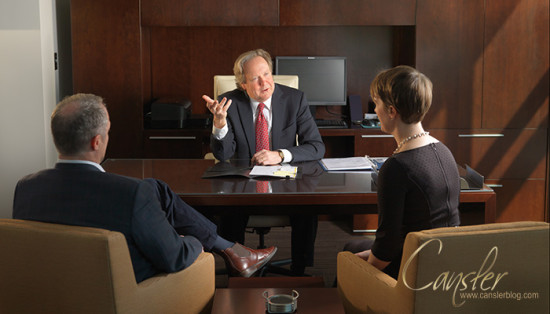One Powerful Way to Become a Great Communicator
Posted on 09. Dec, 2015 by Cansler Photography in Brad, He-Said-She-Said
 Great communicators are made, not born.
Great communicators are made, not born.
Communication is a skill that can be learned, that is why I attend Toastmaster’s, I have a desire to improve my ability to connect with others.
One of the dictionary definitions of Communication is: the imparting or interchange of thoughts, opinions, or information by speech or writing.
What makes up the pieces of the successful communication pie? The words we use are responsible for only 7% of that pie! The next 38% is communicated by our vocal pitch, speed, volume and tonality. An incredible 55% is non-verbal, in other words, visual cues such as body language and eye contact.
Let’s review, only 7% of communication comes from the words we use, which leaves a whopping 93% of our communication dependent on how we use our body; communicating through control of our voice, body position and posture.
To be an effective communicator it takes practice and always being aware.
Becoming a good communicator impacts every single area of your life. To maintain a healthy, strong relationship with a significant other or with your family, this skill is an essential ingredient. For those of you who have children, you will agree that having great communication skill is imperative because you want to instill your values and to encourage great habits and behaviors in them. In your career, if you want to advance up the company ladder, or sometimes to even keep your current position, communication expertise is required.
The number one skill in being an expert communicator is:
Be a good listener.
But what does it mean to be a good listener? You must actively listen to the person speaking and give them your full attention. By doing this you are demonstrating that they are important. People want to be heard and understood. Active listening may mean you take notes, either written or mental, so you can ask them questions to make sure you understood what was said. Think about someone you respect as a good friend or great co-worker, most likely they pay attention to what you say and make sure they understand your thoughts and feelings about whatever subject is being discussed. Listening actively means being involved in the conversation not just sitting there silently, like a lump on a log.
Here are 6 ideas to help you improve your active listening skills:
- Never talk over people. This shows a lack of respect.
- Don’t finish other people’s sentences. Bite your tongue, don’t be in a hurry to hear yourself talk.
- Paraphrase – repeat back what they said, i.e.: “Barry what I heard you say, is the most important thing in choosing your new wife, is that she is a redhead, is that correct?”
- Ask questions that require thought and engagement, not simple ones that result in a yes or no.
- Maintain eye contact – no don’t stare at them, but by looking directly at them you are showing respect and that you are really actively listening.
- Active listening also means to pay attention to how they speak and how they are using their body. If they are speaking slowly and you are speaking at the speed of light your communication will suffer. Be relatable.
Often the simplest way to improve your communication is to remember this phrase:
Slow down to speed up.
Instead of being in a hurry to spew out all your thoughts on any given subject, try the following. Pause, think, and say to yourself, how can I engage this other human being in a way to make sure I understand them and how can I help them to understand me. By doing this you will eliminate misunderstandings and poor communication, thus saving time and lots of energy.
Thoughtful communication is the lubricant that makes the wheels of your life turn smoothly and quietly!
What thoughts and suggestions do you have for being an effective communicator? Leave a comment below to join the conversation.

Comments are closed